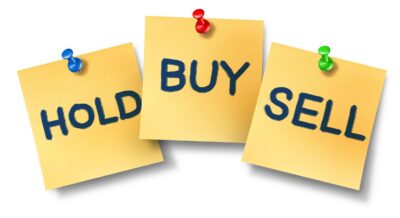With skyrocketing interest rates, investors are looking for a way to make more money. Yield-seeking investors have started looking at bond funds, which can offer diversification and professional management.
How’s the fund’s performance?
Just because the pros manage mutual funds, that’s no guarantee of returns. In fact, when a mutual fund company buys bonds,… Read more
Investment Strategies
Do Dividend-Paying Stocks Provide Enough Income?
Equity ownership
When a corporation sells shares of its own stock, these represent ownership in the company. In other words, a purchaser of even just one share of stock in a company is an owner of the company, albeit a very small owner. As a company prospers, it has the option to reinvest profits back into the business…. Read more
How to Stay One Move Ahead in the Game
One of my favorite hobbies is playing chess. Apart from the challenge of checkmating my opponent, I enjoy the lateral thinking, planning, and strategic thinking skills that are involved in the game.
Recently, I was privileged to interview Israel’s top chess player, Grandmaster Boris Gelfand, on The Goldstein on Gelt Show…. Read more
What You Need to Know About Timing the Market
This is the final installment of our series on investment strategy. This week’s article is about market timing, which is essentially the opposite of dollar-cost averaging.
Pros who believe they can put their money into the market at “optimal” times monitor trends and other financial criteria. They believe that markets follow predictable patterns and that market timers can select stocks before they shoot up…. Read more
4 Qualities to Look for in Choosing Money Managers
Your financial advisor/broker can help you with portfolio planning and carrying out the actual investing. He can suggest suitable purchases, but he cannot follow each and every client’s financial holdings on a daily basis.
That is where a money manager comes in. Financial planners encourage clients to hire a money management team to focus on their portfolios…. Read more
Investing Strategies 101: Buy and Hold
One of the main keys to successful investing is strategy. In the financial world, there are various approaches and strategies for handling your money, and it’s always a good idea to research them to find out whether they could be useful to you.
Over the next three weeks, I will explain the nature of different investment strategies and how they work…. Read more
Do You Need an Emergency Fund?
Financial advisors suggest maintaining an emergency savings fund ranging from three to six months of non-discretionary expenses. Having a set amount set aside for emergencies protects your retirement savings, and helps you avoid going into serious debt when a fiscal crisis occurs. While it may be emotionally difficult to keep money in a liquid (read: not high-yielding account),… Read more
How Your Financial Decisions Are Biased and What You Should Do to Fix Them
When it comes to the world of investing, what you don’t know can hurt you. Michael Roberto, author of Know What You Don’t Know, explained the ramifications of unawareness to me when we spoke on The Goldstein on Gelt Show. Mr. Roberto explained,… Read more
What You Need to Know About Social Security
I recently gave a webinar on the subject of the Windfall Elimination Provision (WEP), which generated lots of feedback. Evidently, the WEP affects many American olim. Many American citizens who have made aliya weren’t aware that their moving to Israel and receiving a pension in Israel would affect Social Security payments…. Read more
Do You Know About These Hidden Dangers In Currencies?
If you’re ready to get serious about a multicurrency life, here are some key ideas you need to know.
Reference and Living Currency
The first thing you have to know is the difference between a reference currency and a living currency. A reference currency is the currency that you use to measure your net worth…. Read more





